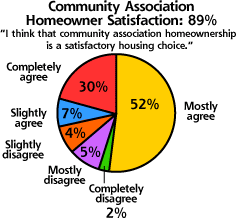A Lifestyle Different than Single Family Living...
 Townhouse and Condo
Lifestyle
Townhouse and Condo
Lifestyle
Years ago Townhouses and condominiums were
almost nonexistent in the United States. Today, one out of
every four home sales is a townhome or condominium.
The reasons they have become a very popular alternative to
single family homes are very simple:
Features: The Townhouse/Condominium lifestyle offers
such amenities as a swimming pool, playground, club house,
balcony, deck, in-unit washer/dryers, individually
controlled air conditioning and heating systems, attached
garages, basements, and in some newer developments, the
latest state of the art kitchens. Most Townhomes and Condos
are just a few minutes' drive or walk from theaters,
restaurants, museums and department stores.
Security: Security in a Townhouse or Condominium
allows for peace-of-mind. Most Townhome and Condominium
communities offer a well-lit and safe living experience.
Affordability: Townhomes and Condominiums are
popular because of their affordability. Typically, the price
per square feet of a townhouse or condominium is lower than
a single family home because the townhouse or condominium
does not have the land that a single family home offers. The
cost efficiencies of townhomes and condominium can save
owners thousands of dollars over the long term. Repairs to
the facility, upkeep of the grounds and other maintenance
expenses are shared by all owners and the cost is spread
throughout the community association.
Maintenance: The maintenance features of townhouses
and condominiums are really one of their best aspects. Most
of them have a 24-hour maintenance staff, which can
routinely attend to any emergency that occurs. Also in some
communities when you are away for an extended period of time
and there is a problem within your unit, the community
management office can resolve some problems.
What is a Townhouse or
Condominium

When
purchasing a townhouse or condominium, you are buying the
interior space of an individual unit, and share an undivided
interest in the ownership of the common areas with other owners
in the complex. Common areas may include areas such as exterior
grounds, hallways and recreational facilities. Your membership
to the community homeowners’ association becomes automatic with
your purchase. Typically these associations charge annual dues
which often times are paid on a monthly schedule.
So what is a condominium or townhouse? It's a cooperative form of
ownership in which homeowners "join with each other on a
democratic basis to own or control the housing and/or
related community facilities in which they live," defines
the National Association of Housing Cooperatives.
A condominium/townhouse owner actually owns part of the building and
land (their own unit and a pro-rata share of the common
property,) while in a "co-op" the owner owns a part interest
in a cooperative that operates the building and land.
A homeowner's association manages and maintains the common
areas and dues can also pay for some or all utility bills,
trash removal, snow shoveling, window-cleaning, and whatever
else the HOA members agree upon.
The nation's largest builders are changing their business
models to build more multi-family housing for purchase. D R
Horton built only single-family detached homes until 1996.
Today, condos and townhomes are over 17 percent of the
company's business, and it expects to build more in the
future, according to a Wall Street Journal report in
December 2005.
Buying a Townhouse or Condominium
You begin your investigation about the community by
carefully reviewing the CC&R’s (Covenants, Conditions, and
Restrictions), Articles of Incorporation and Bylaws. These
documents cover the rules and regulations governing the
community and will answer many of your questions about the
community.
Another important issue to consider is the resale value in
the future. Some factors affecting resale value are: demand
for particular models (number of bedrooms and baths),
upgrades, the location of the unit within the complex (End
unit versus interior unit, backs to woods, near the
playground, golf course or on a pond), location of the
complex (accessibility to major roads and public
transportation), the school system and the taxes.

Condos/Townhouses: A lifestyle choice
that continues to gain popularity
There are about 15 single-family
dwellings to every condo, but buyers are pouring
into condominiums, presumably for the lock-and-go,
low-maintenance lifestyle they promote.
Celia Chen, an economist for Economy.com told American
Demographics that condominium prices have now shot above
those of single-family homes. Clearly, people aren't buying them because they
are cheaper. It's a lifestyle choice, and pundits believe
that they'll only become more popular.
From 2005 to 2015, American Demographics projects that all
owner-occupied households of ages 55 to 74 will rise 36
percent, an increase of over 8 million older homeowners.
According to a 2005 Del Webb survey, 45 percent of "active
adults" (those aged 59-70) plan to move upon retirement. The
number one reason they cite for moving is that they "want a
home with less maintenance."
Why Prices of Identical Townhomes May Vary
How is it possible that two nearly identical townhomes or
condos located a few blocks from one another can vary so
radically in price (often by more than $10,000)?
Disregarding for a moment the interior improvements or
upgrades that sets one townhome apart from another, let us
consider exterior factors that influence the price. For
example, townhomes backing up to main streets that lead in
and out of a neighborhood might be less desirable and could
appreciate more slowly than those separated from primary
thoroughfares. Within a community, some factors affecting
the price are: the location of the unit within the complex
(End unit vs. interior unit, backs to woods, near a
playground, golf course or on a pond) and the taxes. Also
demand for particular models or demand for townhomes in a
particular community, location of the complex (accessibility
to major roads and public transportation) may affect the
price.
Existing townhomes may differ radically in price for another
reason: while one homeowner wants to sell, another may have
to sell. It is easier to negotiate with the latter because
he or she must vacate for one reason or another. The former
will, of course, be more difficult to negotiate.
The purchase of a home is a significant financial (to say
nothing of sentimental) investment. Remember to take all of
these facts into consideration as well as your own personal
preferences. To ensure you have all the information you need
to make a good choice and for details about your particular
community and model, please Contact Us,
The North Jersey Condo and
Townhouse Experts.
|

